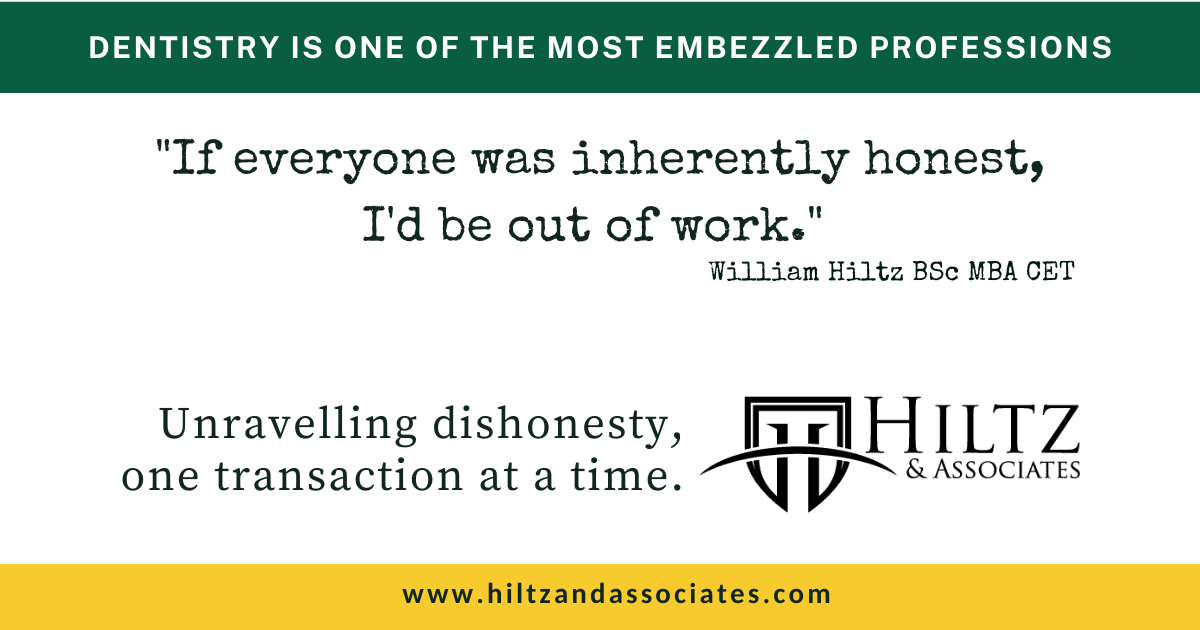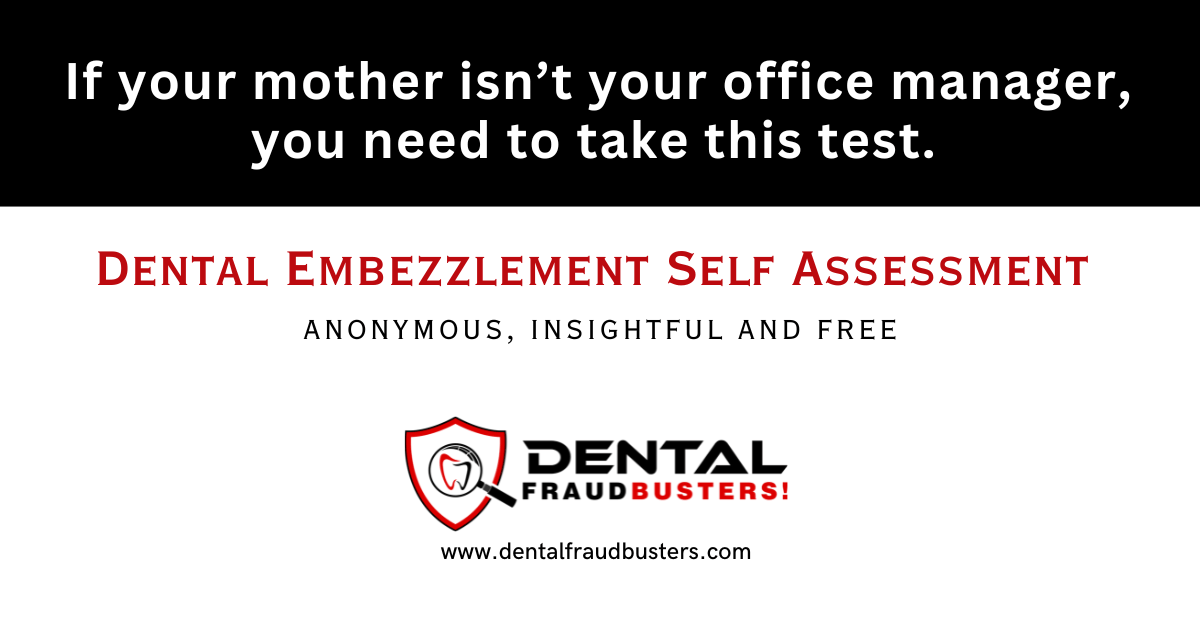It’s a fact. Dentistry is one of the most embezzled professions.
Posted:
Last Updated:
There is no shortage of dishonesty in this world.
Published statistics say more than half of dental practices will be embezzled at least once.
The 10-80-10 rule of ethics
This 10-80-10 rule is based on decades of experience by auditors, accountants, fraud examiners, and others who discover and investigate employee theft.

Here’s what the rule implies.
10% of people will steal given the opportunity, 10% will never steal, and the remaining 80% could go either way.
10% of employees steal from their employer.
It could be little items like supplies, or major things like cash, salaries, and checks.
People in this percentile frequently have an unjustified sense of entitlement. They possess a “taker’s mentality”. These people are generally unstoppable; and will continue to steal until the they are caught.
10% of employees never steal from their employer.
People in this percentile possess integrity and honesty. These individuals provide tremendous value to a practice and are highly desirable as employees.
80% of employees will steal under the ‘right’ conditions.
8 in 10 people have flexible ethics and are more likely to steal when three conditions are met:
- they are under financial, psychological or emotional pressure,
- they recognize an opportunity to steal, and
- they rationalize their actions. See: Techniques of Neutralization
This is especially troubling when people in this category have earned their employer’s trust and work in a position that requires them to handle their employer’s money.
When you consider that most employees will face financial challenges at some time in their careers, the need for effective fraud policies, procedures, and oversight becomes evident.
Red flags can be significant in uncovering financial misconduct.
A staggering 85% of embezzlement cases involved at least one of the Top Six embezzlement red flags.
CLICK ON THE IMAGE TO TAKE THE ASSESSMENT


